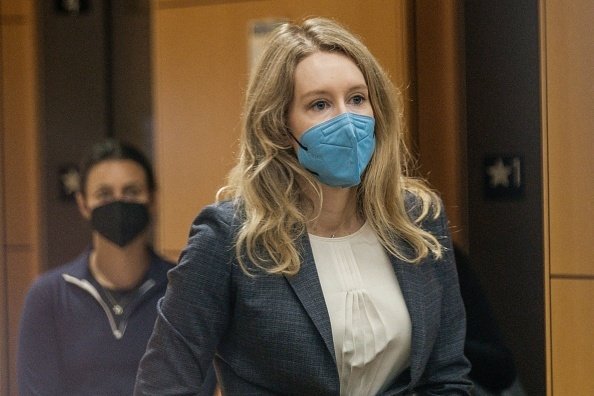In a decision that may serve as yet another a warning to other tech startups that have raked in millions of dollars in venture capital based largely on promises rather than actual results, Elizabeth Holmes was found guilty of three counts of wire fraud and one count of conspiracy to commit wire fraud related to her time at the helm of blood-test developer Theranos.
Holmes’ conviction comes after a trial that spanned nearly four months—featuring testimony from dozens of witnesses and no shortage of eye-opening evidence about the inner workings of the company—and that culminated in more than 50 hours of jury deliberations across seven days.
All four of her guilty counts stem from the prosecution’s claim that Holmes misled Theranos’ investors, who poured hundreds of millions into the startup based on its CEO’s vision of a benchtop machine that could run hundreds of diagnostic tests using just a few drops of blood—a vision that never truly came to fruition, despite assurances and materials provided to investors and partners.
She was simultaneously tried on seven other charges of fraud. The jury found her not guilty on four counts related to defrauding patients. In the remaining three charges, which were also linked to deceiving investors, the jury was unable to come to a unanimous decision.
Judge Edward Davila, who oversaw the trial in California’s Northern District, is expected to declare a mistrial for those last three counts, the New York Times reports. After that, Holmes could potentially be indicted and tried again on the same charges, though prosecutors have not yet said if they will pursue that path.
Each of the convictions could carry a fine of $250,000 plus restitution and a maximum sentence of 20 years in prison, though any prison time handed down for each of the four guilty counts would likely be served concurrently. Holmes’ sentencing date will reportedly be scheduled next week, when the court reconvenes to address the deadlocked charges.
“The guilty verdicts in this case reflect Ms. Holmes’ culpability in this large-scale investor fraud, and she must now face sentencing for her crimes,” U.S. Attorney Stephanie Hinds said in a statement, per Bloomberg.
The partial guilty verdict signifies the jury’s rejection of Holmes’ defense, which framed her as a first-time Silicon Valley CEO who made a bevy of fantastical promises—and plenty of rookie mistakes—during Theranos’ high-flying rise to a $9 billion valuation at its peak.
In her own seven days of testimony during the trial, Holmes, who founded Theranos at 19, admitted to a variety of those mistakes, including adding pharmaceutical companies’ logos to Theranos reports they hadn’t signed off on and secretly swapping in modified Siemens analyzers in its blood-testing partnership with Walgreens after the company’s own MiniLab and Edison machines were unable to perform as promised. Still, she maintained that she believed wholeheartedly in the vision she was selling to investors, partners and patients alike.
Holmes and her team also attempted to prove that in many of her missteps, she was being manipulated by Ramesh “Sunny” Balwani, the former chief operating officer and president of Theranos and, for much of the startup’s lifespan, Holmes’ not-so-secret boyfriend. The defense claimed that Balwani was emotionally and physically abusive and maintained a level of control over Holmes that kept her from making sound business decisions.
Balwani has categorically denied all allegations of abuse. With Holmes’ trial wrapping up, his own federal trial for the same 11 counts of fraud will soon commence. Like his former partner, Balwani has also pleaded not guilty on all counts.

